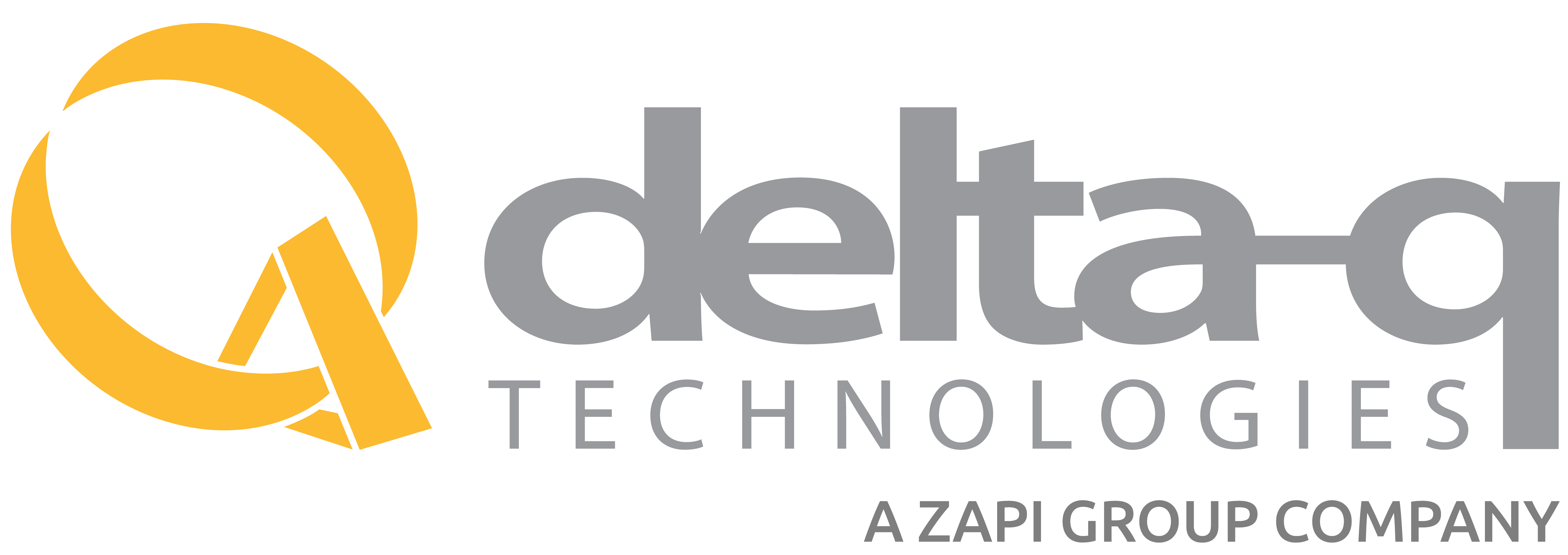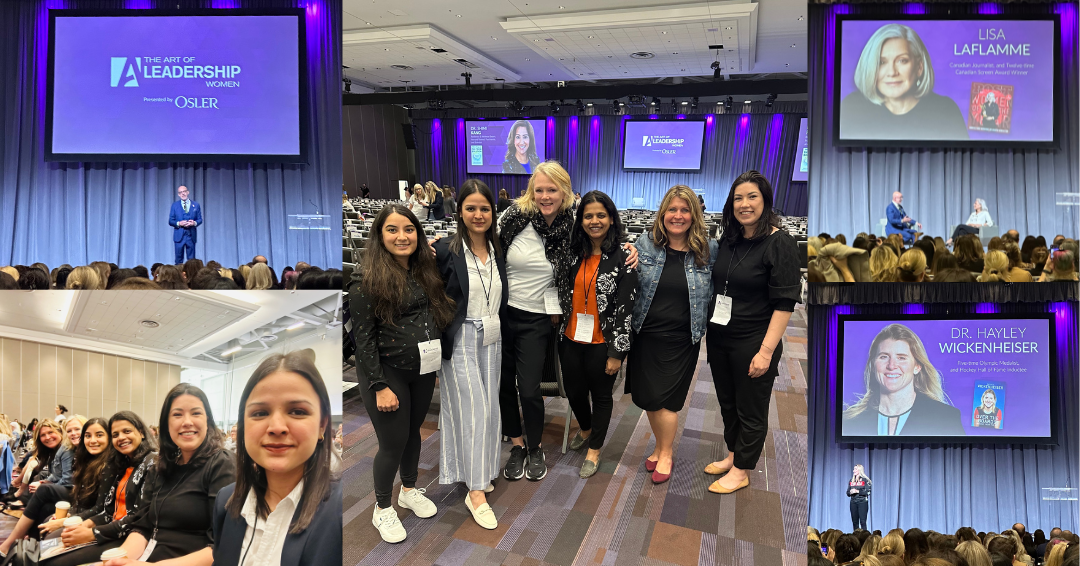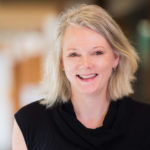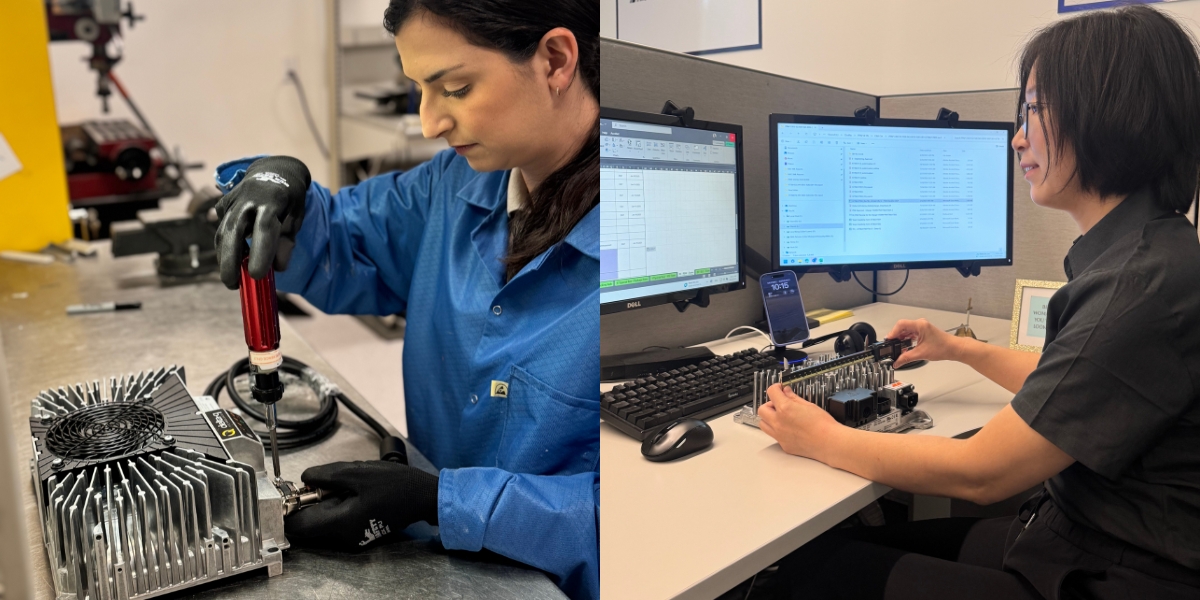Recently, Delta-Q provided leadership development training to its employees, including six women who had the opportunity to attend the Art of Leadership for Women conference held in Vancouver on June 6, 2023. This annual conference focuses on the challenges women leaders face in today’s corporate world. It equips attendees with the right tools, insights, and strategies to adapt and thrive as they climb the corporate ladder and take on greater responsibilities.
This exceptional event featured a diverse lineup of influential female leaders, such as global diversity & inclusion expert Ritu Bhasin, five-time Olympic gold medalist Dr. Hayley Wickenheiser, Canadian journalist Lisa LaFlamme, negotiation & communication expert Fotini Iconomopoulos, and resilience & wellness expert Dr. Shimi Kang MD, FRCPC.
To gain insight into the conference experience, I interviewed three Delta-Q attendees: Brooke Hanson, Komal Kaur and Angelica Vasques. Our discussions centered around their overall impressions of the conference, the most impactful lessons they acquired, how they plan to implement these newfound insights into their roles and responsibilities at Delta-Q, and the sessions or moments that had a profound and lasting impact on them.
Please share your experience attending The Art of Leadership Women conference. Was this your first time participating in the event?
Brooke: I have attended the Art of Leadership conferences for the past 10 years, and it’s always a well-organized event with relevant and motivating speakers. It is one of the regular Vancouver events that is worth attending!
Komal: The Art of Leadership for Women was insightful and empowering. Ever since the conference, I’ve been feeling extremely energized and motivated. This was my second time participating in this event. I could really resonate with the speakers, and listening to the remarkable experiences of these inspirational women filled me with two emotions – courage and empathy. I found their suggestions highly effective, which was a great learning opportunity.
Angelica: It was my first time at the conference. I was very excited and had high expectations based on what I’d heard from my colleagues who attended the event last year. The experience overall was terrific. The venue was excellent, and the atmosphere was very energetic! Over 2,000 people were eagerly waiting to listen to the keynote speakers, who were carefully chosen to represent different backgrounds and work experiences. Among them were doctors, athletes, executives, and the renowned journalist Lisa Laflamme, the final speaker at the event.
What were some of the most impactful insights or lessons you took from The Art of Leadership Women conference?
Brooke: This year, I found Dr. Hayley Wickenheiser to be inspiring. Specifically by how hard-working and driven she is by changing her career later in life from a Canadian Hockey player to becoming a doctor. Learning about how she effectively operates as part of a team in both roles left a lasting impression on me. The conference always sparks motivation and energy that lasts after the conference, and that is a great takeaway for me.
Komal: I took away a few invaluable lessons that will help me both professionally and personally. First, to be content, I should always bring my authentic self to the table. Changing myself just to fit in may bring me success but not satisfaction. Secondly and more importantly, I have and will come across setbacks, but I should always remind myself that the comeback must be bigger than the setback.
Angelica: I learned three major lessons. Firstly, authenticity. We shouldn’t have to change who we are to fit in. While it may open some doors, the price is too high, and it’s not sustainable. We should cultivate authenticity by knowing and embracing ourselves. Additionally, as leaders, we should adapt our behavior to allow others to be authentic. Secondly, adaptability and wellness. We need to reconnect with our humanity in a dopamine-driven society where an unbalanced lifestyle has affected our creativity, one of our most crucial skills. In a prescribed “tech solution plate,” mindless entertainment, gaming, and social media should occupy only a small portion of our day, leaving time to focus on self-care and meaningful connections with loved ones. And thirdly, performance. “We are not what we do,” as Dr. Hayley Wickenheiser highlighted. This phrase was particularly important in a speech about performance because it’s common to forget other aspects of our lives when striving for high performance. Another impactful phrase was, “It’s okay to feel butterflies as long as they are flying in formation,” emphasizing the balance between accepting our emotions and still achieving our goals.
What new perspectives or approaches do you plan to implement based on what you learned at the conference, and how do you anticipate these changes will positively impact your roles and responsibilities at Delta-Q?
Brooke: Say Less, Get More! I will continue to empower my team and support them to grow and be the next leaders within our organization while also supporting the women across our organization as they work to develop.
Komal: One thing that I will definitely implement in my life moving forward is setting the tone of my thoughts. The more optimistic my thoughts about a situation are, the more positive the outcome will be. One of the examples that Fotini Iconomopoulos used was controlling your thoughts before entering an important meeting. Rather than thinking about how nervous I am, I should skew my thinking towards how excited I am to show my preparedness for the meeting. This advice would be useful for me during meetings with customers and other stakeholders.
Angelica: The new communication techniques I learned, such as altering our inner monologue, utilizing anchoring, and employing the “If you…then I…” approach in negotiations, will immensely benefit my daily tasks. These newfound communication approaches will enhance my effectiveness in fulfilling my role at Delta-Q. I also learned that an imbalanced lifestyle and stress directly impact essential skills such as creativity, collaboration, communication, critical thinking, and contribution. To ensure that my skill set is optimized for peak performance, I intend to integrate mindfulness practices into my routine, such as observing nature, taking downtime, and disconnecting to regulate stress.
How has attending The Art of Leadership Women conference influenced your perception of the challenges women leaders face today, and how do you plan to address these challenges within our organization?
Brooke: While there is a change in the industry, we need to encourage the women within our organization to use their voices when they should. We have been, however, working to have more events to continue supporting development for those women interested. While we draw women to the company based on having a female co-CEO, we need to work with educational institutions to engage more females in Engineering.
Komal: Attending this conference helped me widen my perspective on the difficulties women leaders have faced to carve a place for themselves in the past few decades. It took a few generations of strong women to bring this change, where we see more women taking up more challenging roles. One of the challenges that still exists is the proportion of women in some industries, especially tech. I often hear how there are very few women on the table when it comes to higher-level management meetings. At Delta-Q, however, we have many women in leadership positions. Interacting with these women brings me to the realization that women can do it all, and there is no reason we should undersell ourselves.
Angelica: During the speech about authenticity, it was explained that one of the responsibilities of a leader is to cultivate belonging. This made me reflect on the struggle many women face in finding belonging in roles predominantly occupied by men. Additionally, a quick search for statistics reveals that men earn 49.3% more than women with the same qualifications, indicating that there is still a long way to go. Fortunately, more and more organizations are recognizing the power of inclusion, and talented women are making a difference in the workplace. I believe that by promoting a culture of authenticity, supporting work-life balance, and advocating for equal opportunities, we can create an environment where all individuals, regardless of gender, can thrive and contribute their best to our organization.
What were some of the standout moments or sessions from the conference that left a lasting impression on you, and why?
Brooke: All the speakers were great. Dr. Hayley Wickenheiser bringing her nieces on stage to show them what female leadership looks like to help build up the younger generation was inspiring. It was also wonderful to hear Lisa LaFlamme speak and give her perspective. She usually covers stories, so to be there to share her experiences and hear her humor was such a highlight.
Komal: One moment from the event that will always be engraved in my memory is when Dr. Hayley Wickenheiser brought her two young nieces on the stage. At the same time, everyone stood up and applauded her courage and perseverance. That moment had a deeper meaning to it. It was two little girls looking at hundreds of women working hard every minute to create a better, brighter, and more inclusive future for them. Women with inspiring stories. Women they can look up to when they face challenges and need the strength to overcome those challenges!
Angelica: All the presentations were enriching and resonated with me in different ways, but Lisa Laflamme’s speech was particularly touching and honest. She firmly addressed sensitive topics and showed vulnerability when admitting that she had ended up in the hospital after working herself to exhaustion. Her advice resonated with me: sometimes, we put too much of ourselves into what we do, and it’s important to be conscious and recognize when our bodies need a break. Her advice was simple but impactful: “Don’t do what I did.” Another piece of advice that stuck with me is the reminder that we don’t know how resilient we are until we have to be.





